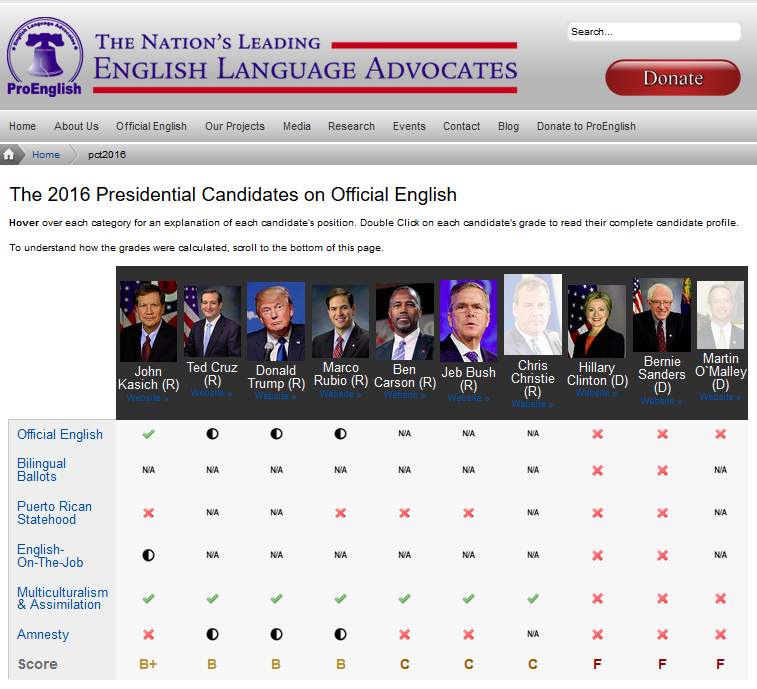What’s the official language of the United States? This is a trick question, because the U.S. doesn’t have an official language, and never has. What’s the official language of Puerto Rico? Like more than half of the States of the Union, Puerto Rico does in fact have an official language policy. Like Hawaii, Puerto Rico has two official languages. The two languages are English and Spanish.
But the language spoken in each State is a matter for the States to decide. The U.S. Constitution takes no position on this question.
That doesn’t stop English-first and English-only organizations from using it to work against statehood and equal rights for Puerto Rico.
U.S. English has for some years called for English-first policies in Puerto Rico before a vote on statehood. They testified in hearings in 1997, saying, “Would Spanish be used for the official record in federal courts in Puerto Rico? On appeal, the courts of appeals and the Supreme Court must base their decisions on the official record. Does the Supreme Court need to become bilingual to handle appeals from Puerto Rico?”
The Supreme Court already handles appeals from Puerto Rico.
“The goal of education programs in the rest of the United States is to produce students fluent in English. If Puerto Rico’s schools do not aim for English fluency, are the students being shortchanged, particularly if they later move to the mainland?” Puerto Ricans already move to the mainland in large numbers. Statehood is not even relevant to this question.
Last November, their chairman, Chairman Mauro E. Mujica, issued a new statement on the subject in response to then-candidate Ben Carson’s support of statehood for Puerto Rico. “Declaring Puerto Rico the 51st state in the United States would be detrimental to our sense of national unity,” he said, “An overwhelming majority of residents of Puerto Rico speak Spanish and nearly 85 percent of residents are limited English proficient, meaning they would struggle to carry on a basic conversation in English.” Mujica fails to note that other bilingual and multilingual States have joined the Union before, without apparent detriment to the sense of national unity.

Why are English-only organizations opposing statehood for Puerto Rico, when there are already States with more Spanish speakers than Puerto Rico? Possibly because the fact that 3.5 million U.S. citizens live on the Island without facing the kinds of problems English-only organizations predict is evidence against their claims.







No responses yet